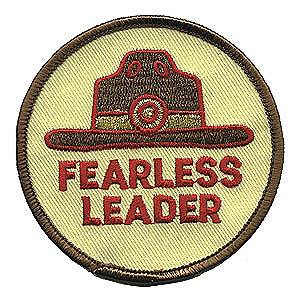How To Be A Great Leader – 5 Insights From Research
udies have shown the traits that correlated most powerfully with CEO success as well as the most common failures of bad leaders. Avoid extremes of assertiveness or passivity. The best leaders are supportive, not controlling, even in the military. Find a balance between tough and nice. Your leadership style must adapt to the environment around you. Understand what things really motivate people. (No, not money.) What's the #1 motivator? Progress. Definitely progress. Want your employees to perform better? It can…
2 minutes
The Key To Being Liked And Being More Influential
e key to being liked and being more influential is similarity. You like names better when they are similar to yours. You even prefer brands that merely share your initials. Birthdays are easier to remember when they are closer to yours. You even prefer people who move the way you do. Demonstrating that you have something in common with someone else makes them more likely to help you. Salesmen deliberately fake little similarities in order to influence you and connect…
2 minutes
Watching TV Increases Empathy
s. Via an excellent piece by Jonathan Gottschall in the Boston Globe: As the psychologist Raymond Mar writes, “Researchers have repeatedly found that reader attitudes shift to become more congruent with the ideas expressed in a [fictional] narrative.” For example, studies reliably show that when we watch a TV show that treats gay families nonjudgmentally (say, “Modern Family”), our own views on homosexuality are likely to move in the same nonjudgmental direction. And it's not just TV. It's fiction, in…
2 minutes
Does email turn you into a jerk?
mmunicating via email (vs. face-to-face) makes people less cooperative and makes them feel more justified in being noncooperative: Two empirical studies are presented that explore how and why e-mail communication (versus face-to-face communication) influences cooperation in mixed motive group contexts. Results indicate that, relative to those engaging in face-to-face interaction, those who interacted via e-mail were (1) less cooperative and (2) felt more justified in being noncooperative. Feelings of justification mediated the relationship between communication media and the decision to…
1 min read
The 3 Techniques The US Army Uses To Instill Mental Toughness
a Annie Murphy Paul's very interesting article in Time: 1) "Mental toughness comes from thinking like an optimist." The program’s key message: Mental toughness comes from thinking like an optimist. “People who don’t give up have a habit of interpreting setbacks as temporary, local and changeable,” notes Penn psychology professor Martin Seligman, describing the intervention in a recent journal article. When such individuals encounter adversity, they think to themselves: “It’s going away quickly; it’s just this one situation, and I…
1 min read
The Fast Way To Make Better Decisions, Backed By Research
ke the perspective of someone else. Think about what your smartest friend might do in that situation. We investigated how perspective-taking might be used to overcome bias and improve advice-based judgments. Decision makers often tend to underweight the opinions of others relative to their own, and thus fail to exploit the wisdom of others. We tested the idea that decision makers taking the perspective of another person engage a less egocentric mode of processing of advisory opinions and thereby improve their…
2 minutes
3 Quick Tips That Will Make You More Charismatic
a The Charisma Myth: How Anyone Can Master the Art and Science of Personal Magnetism: Lower the intonation of your voice at the end of your sentences. Reduce how quickly and how often you nod. Pause for two full seconds before you speak. Why do these work? I've posted a number of times on the power of your voice. You can predict who will be elected president by how deep their voice is. Men with deeper voices are more attractive…
1 min read
Does being an underdog make you more motivated than the competition?
. Via Your Pinkie Is More Powerful Than Your Thumb: And 333 Other Surprising Facts That Will Make You Wealthier, Healthier and Smarter Than Everyone Else: The favorites, it turns out, try 30 percent harder when they face underdogs, a new study shows. Favorites try harder because they have more to lose, and they fear the humiliation of losing to teams they should beat. The results of the study contradict the common belief that underdogs have more motivation than their…
1 min read








